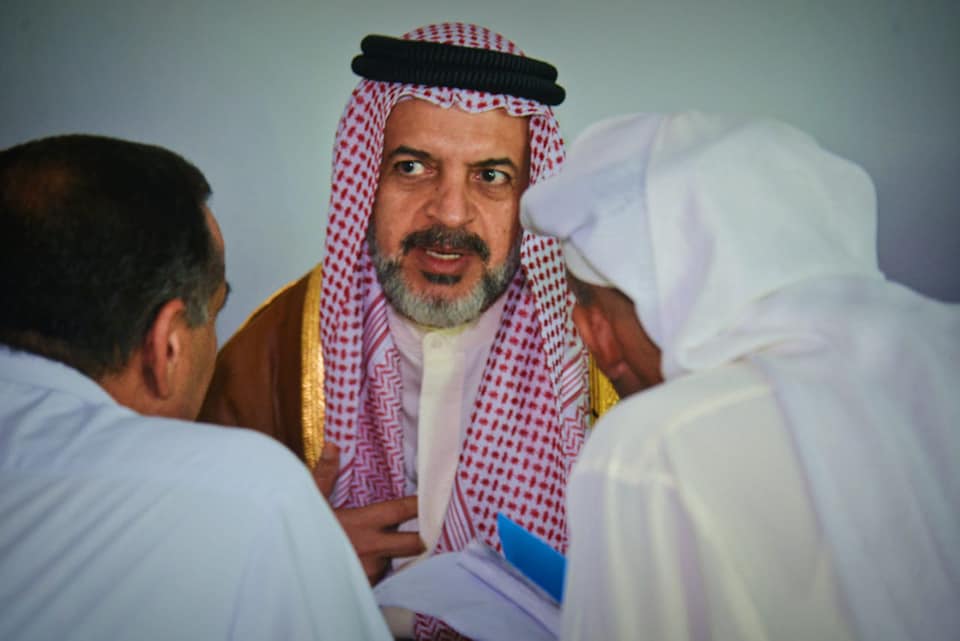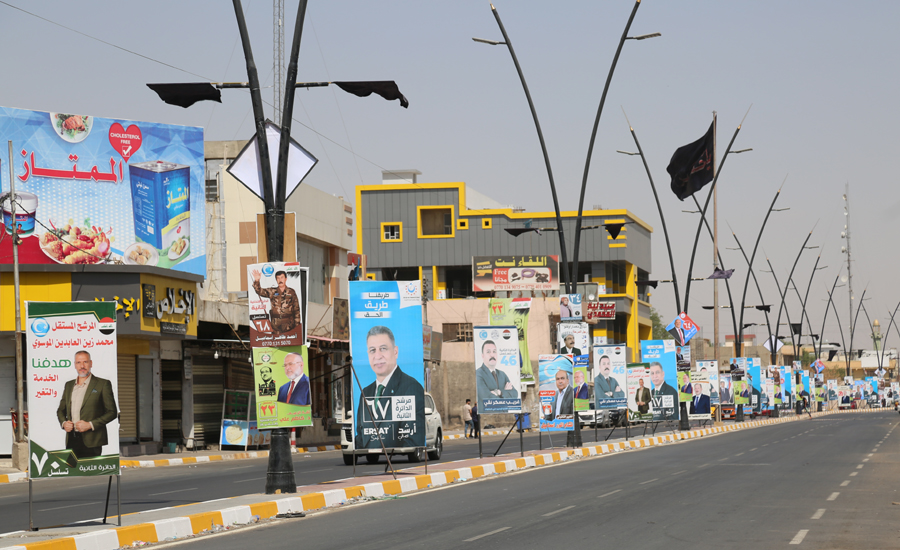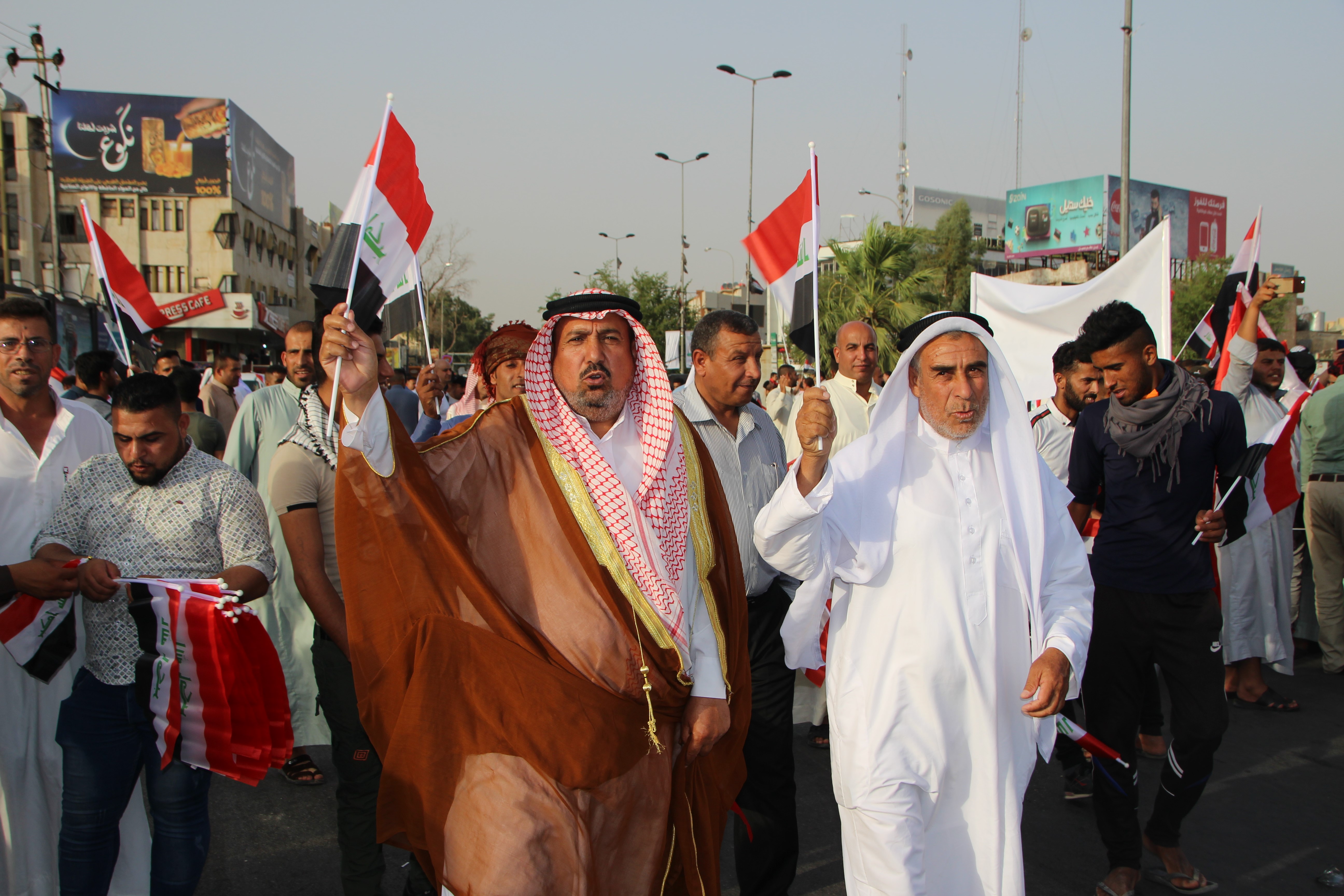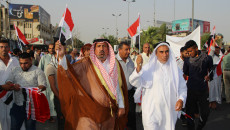Two Kirkuki figures are nominated to take senior positions of deputy prime minister and a minister in the upcoming cabinet, sources told KirkukNow.
A high-ranking, well-informed source involved in the negotiations to form the next Iraqi government, told KirkukNow the share of the Arabs in Kirkuk will be the deputy prime minister, and the most fortunate figure is the lawmaker from Hawija district Muhammad Tamim, and there is a government and ministerial position for another Kirkuk of the Arab community among those lost the race to the Iraqi house of representatives yet not named.
The Sovereignty alliance, an umbrella for 67 Sunni Arab lawmakers led by Khamis Khanjar, has nominated Mohammed al-Hablbousi as speaker for the second term, and is pushing for other senior positions.
It is the first time that the Sunni Muslim Arab plotical parties unite following the toppling of Saddam Hussein regim in 2003. Analysts believe that Gulf Countries GCC and Turkey have invested in the current political elite following the boycott of the political process when insurgency and al-Qaeda plagues Iraq.
The current acting governor of Kirkuk, Rakan al-Jibouri, a Sunni Arab from Kirkuk, has decided to stay in position though he earned a seat in the Iraqi parliament. One of his competitors, a prominent tirbal figure has replaced him in Baghdad.
The source, close to the presidency of the "Sovereignty" coalition, anonymously told KirkukNow, "the representatives of Kirkuk province are working to obtain a senior position to represent them in the next government, and that the representative of Hawija district, Muhammad Tamim, is the most likely candidate for this position, of Deputy Prime Minister (PM)."
"Among the alternative solutions proposed, the Ministry of Education will go to Tamim in the event that it is not possible to agree on the first position," the source confirmed. “An Arab figure from the second constituency (of Kirkuk province) who lost the elections will also take another position within the next cabinet."
The representative of Tqadum (Progress led by Halbousi) coalition in Kirkuk province, Muhammad Tamim, won the highest votes in the third constituency in October 10th General Elections,.
The Arab political parties and candidates has earned four seats in the last early elections, three seats in the third Arab-dominant constituency while the Kurds won sisx seats and two seats for the Turkmens.
They are Muhammad Tamim, and Rakan Saeed al-Jubouri, the current governor of Kirkuk, who gave up his seat after negotiations and agreements made within the “Sovereignty” coalition, led by Khamis al-Khanjar, to be an alternative. One of the sheikhs of the Al-Ubaid tribe, Wasfi Al-Asi, narrated it, while the third seat, which is dedicated to the women’s quota, went to Mona Al-Sabeel, and the fourth seat was in the first district and went to Muhaimin Ali Al-Hamdani.
The oil rich city of Kirkuk, Iraq's second largest oil reserves, is ethnically a mixed province of 1.7 million Sunni and Shiite Kurds, Arabs, and Turkmens, beside Christians and Ezidis. It has long been at the center of disputes between the federal government in Baghdad and the autonomous Kurdistan Regional Government KRG.
Kirkuk, 238 kilometers north of Baghdad, is the center of the disputed territories of Iraq that runs from Shingal in Nineveh province on the Syrian border southeast to Khanaqin and Mandali on the Iranian border.
The spokesman for the Arab coalition in Kirkuk, Hatem Al-Taei, said the Arab component (of Kirkuk) works according to the political blocs, and “any position that any of Kirkuk's representatives of the Arab component will take is to enhance the governorate's national position in supporting the file of projects and financial allocations.
“We strongly support senior positions for all components in the new government will be reflected in support for Kirkuk."

Mohammed Tamim, currently lawmaker, is candidate as deputy Prime minister in next cabinet. Personal Facebook account of Tamim
The Sovereignty Alliance had decided that Al-Jibouri, the acting governor of Kirkuk, would remain in his position and not take the constitutional oath in the Iraqi parliament. This step, according to more than one source, is "part of the tripartite alliance agreement between Al-Sadr, Al-Halbousi and Barzani."
After the approval of the Federal Court on the final results of the Iraqi Parliament elections, these three political parties announced an alliance to form a national majority government, and on January 9, the positions of the presidency of the Iraqi parliament were shared among them: the speaker for the Sunni Arabs, first vice speaker for Sadrist bloc and second for Kurdistan Democratic party led by Masoud Barzani.
The Sovereignty Alliance, which is a major party to the agreement and is headed by Muhammad al-Halbousi, the speaker of the Iraqi parliament and Khamis al-Khanjar, decided on Friday, February 4, that Rakan Saeed would continue to serve as the governor of Kirkuk and not take the constitutional oath.

The Turkmen component declared it has the right to have a sovereign position and a ministry because it represents the third component in Iraq and Kirkuk.
As for the former head of the Turkmen Front and the current representative of the province’s Turkmens, Arshad al-Salihi, he believes, “The Turkmen component has the right to have a sovereign position and a ministry because it represents the third component: the position of one of the vice presidents, deputy prime ministers or an important sovereign ministry.
“It is an electoral and national right for the Turkmens in the new government."
“The formation of the national majority government is a step in the right direction, as well as the presence of an opposition that evaluates the performance of the ministers’ work," Salihi added.
The Shiite cleric Muqtada al-Sadr, leader of Sadr bloc which has secured 73 seats in Iraqi parliament and considers it self the biggest bloc in the parliament, is pushing to form a national majority government also with Sunni Arabs and Barzani, a step hindered by Iran which has been influential in Iraq in the last two decades, which deems Sadr’s plan a blow to its alliance, the framework agreement led by Nouri al-Maliki.
The political and administrative system is a failure since 2003
Al-Salihi called on all political blocs to conclude a new political agreement, stressing that "the political and administrative system has failed since 2003 to make a qualitative leap and societal stability to serve the citizen.”
“Electricity is a dilapidated system, and the investment file failed to achieve industrial and development projects as other sectors."
In the current cabinet, the Turkmens obtained a portfolio last year when the Iraqi parliament voted in January 2021 to grant confidence to the Turkmen candidate, Hiyam Nemat Mahmoud Al-Haidari, as Minister of State in Mustafa Al-Kadhimi’s government.
Al-Haidari has held several executive positions, most notably the position of Director General in the Iraqi Ministry of Planning, and Director General of the Financial Management Department in the Council of Ministers.
The Turkmens has no minister in the governments of Haider al-Abadi (2014-2018) and Adel Abdul-Mahdi (2018-2019).
As for the Arabs of Kirkuk, the Ministry of Education was their share in 2012, and they did not receive any ministry after that in the last two sessions.






